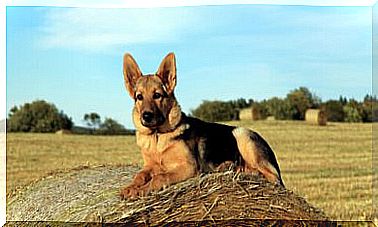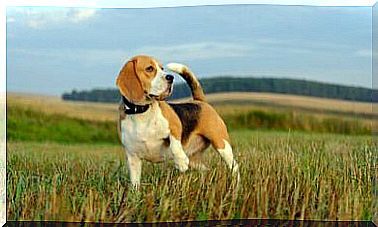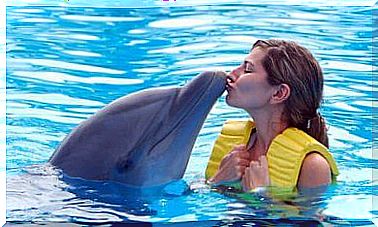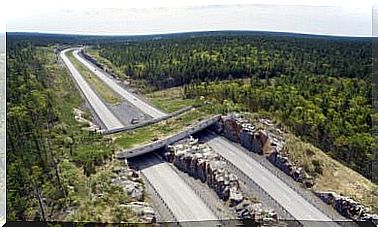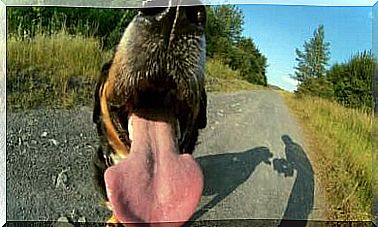The Importance Of Nutrition In The Development Of Puppies
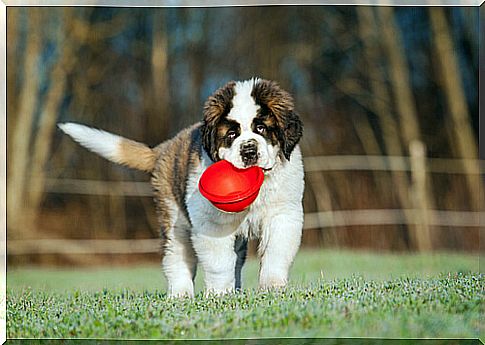
Nutrition is naturally one of the most important factors for the growth and proper development of puppies, because it is directly linked to the way in which they will develop. Although poor nutrition is usually associated with a low-nutrient diet, it must be remembered that too much or too much nutrition can harm your puppy’s health and future development. Below we will give you some tips on the diet to be given to your 4-legged friends and some examples regarding the importance of nutrition in the growth of puppies.
The first year of a puppy’s life is very important, as it is the time when he learns and develops the skills that will lead him to be a balanced adult. During this phase of development, his organism is also strengthened thanks to nutrition, vaccination and exercise. Therefore a bad diet can bring with it bad consequences such as the alteration and interruption of normal growth processes, these being mainly related to the consumption of calories, proteins or calcium.
Inadequate consumption of calories

Everyone knows that puppies need more calories and energy than adult dogs. However, this does not mean that they have to consume an excessive amount of calories. Adult dogs store excess calories in the form of fat. However, in puppies and young dogs this type of diet will cause rapid growth due to the excess energy that the puppy is unable to consume.
This is why this too rapid development process will produce an over-stimulation of bones, muscles and joints, generating pathologies such as arthrosis, muscle tension or bone problems such as dysplasia of the pelvis bones.
Similarly, puppies that grow very quickly tend to obesity, mainly caused by overfeeding. This means that the skeleton (which is not yet fully mature) is unable to support the weight of the puppy, hindering adequate growth and causing malformations to the muscular skeleton system.
Consumption of calcium
Puppies need large amounts of calcium, especially in the immediate post-weaning stages (between 2 and 5 months). In fact, calcium helps them develop and strengthen the newly formed cartilage tissues. However, the consumption of calcium and phosphorus in puppies is supervised, since its intake must be regulated in accordance with the size of the animal, since large and giant breed dogs have a greater need for these elements.
Inadequate calcium consumption is directly related to damage to the animal’s bone system, as well as growth disturbances. For example, low calcium consumption can result in brittle bones, demineralization of cartilages and deformations of both. However, an excessive consumption of calcium can, on the other hand, hyper-calcify them. This will also lead to joint and bone problems, such as cartilage calcification or instability in the vertebrae.
Consumption of protein
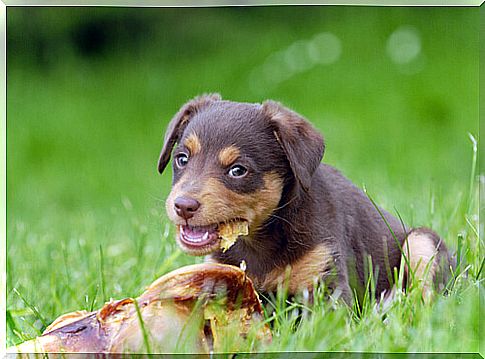 There is no study that links excessive protein consumption with problems in the development of the organism of puppies, but it is thought to be one of the causes. In any case, it has been noted that the lack or excess of proteins can cause damage to puppies, as they affect the growth and muscle development of dogs. It can also affect other parts of the body, such as the cardiovascular system, skin and coat.
There is no study that links excessive protein consumption with problems in the development of the organism of puppies, but it is thought to be one of the causes. In any case, it has been noted that the lack or excess of proteins can cause damage to puppies, as they affect the growth and muscle development of dogs. It can also affect other parts of the body, such as the cardiovascular system, skin and coat.
Feed it with homemade methods or with feed
Industrial food (both wet and dry) has the advantage of being created specifically for dogs, limiting the presence of salt, excess calories and fat. They are also excellent for regulating their organism and are also good for the teeth and digestion of puppies. If the owner still decides to feed the puppy with home methods, it is not a bad choice, as long as the basic rules of feeding the puppies are carefully followed.
The advantage of these methods is that you can control exactly what the puppy consumes. However, as mentioned, we must be careful about the consumption of calories and fats and avoid some foods that can be harmful to your body.
In general, when looking for a diet for a puppy, you should opt for foods that are low in calories, rich in protein and calcium. It is also necessary to avoid the administration of proteins, unless there is a recommendation from the veterinarian and carefully follow the instructions given by him to ensure the best possible nutrition for the puppy based on the stage of development in which it is and its breed.



